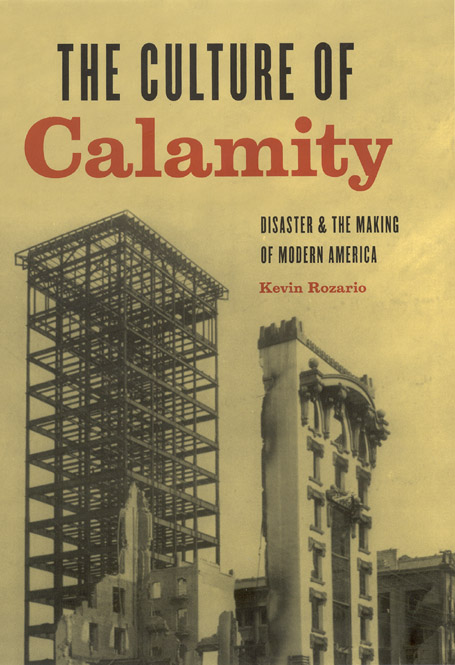Diverting disasters or disasterous diversons?

Kevin Rozario’s The Culture of Calamity: Disaster and the Making of Modern America was one of several books in a review essay about America’s complex relationship with disaster published in last Friday’s Financial Times. Arguing that American’s find disaster simultaneously terrifying and entertaining, the FT‘s Michael Skapinker uses Rozario’s book to help explain this social paradox, especially in terms of the way this conflicted attitude is reflected in the media. Skapinker writes:
Kevin Rozario, who teaches American studies at Smith College, Massachusetts, writes astutely about disaster, particularly its relationship with entertainment. As he notes in The Culture of Calamity: Disaster and the Making of Modern America, the link predates the modern movie industry.
A few months after the 1906 San Francisco earthquake and the subsequent fires, Lucile Garrett went with her parents to see a re-enactment of the event at a theatre in Minneapolis. “On the stage,” she recalled, “was a miniature reproduction of San Francisco, on the night of the fire … Then suddenly we were favoured with a great rumbling! The hills on which the city was built shook and tottered! … Finally the hills cracked open, the tottering buildings fell, and the whole city burst into flames. It continued to burn for some minutes and at last they lowered the curtain on the glorious blaze.”
Like the events of September 11 almost a century later, the terrible filmic quality of disasters is often inescapable. Anthony Lane, the New Yorker critic, wrote in the immediate aftermath of 9/11: “Of course you could argue that last Tuesday was an instant dismissal of the fantastic—that people gazed up into the sky and immediately told themselves that this was the real thing. Yet all the evidence suggests the contrary; it was the television commentators as well as those on the ground who resorted to a phrase book culled from the cinema: ‘It was like a movie’, ‘It was like Independence Day.’ ‘It was like Die Hard.’ ‘No, Die Hard 2.’
Read the rest of the article on the FT website.
Also, read an excerpt from the book.